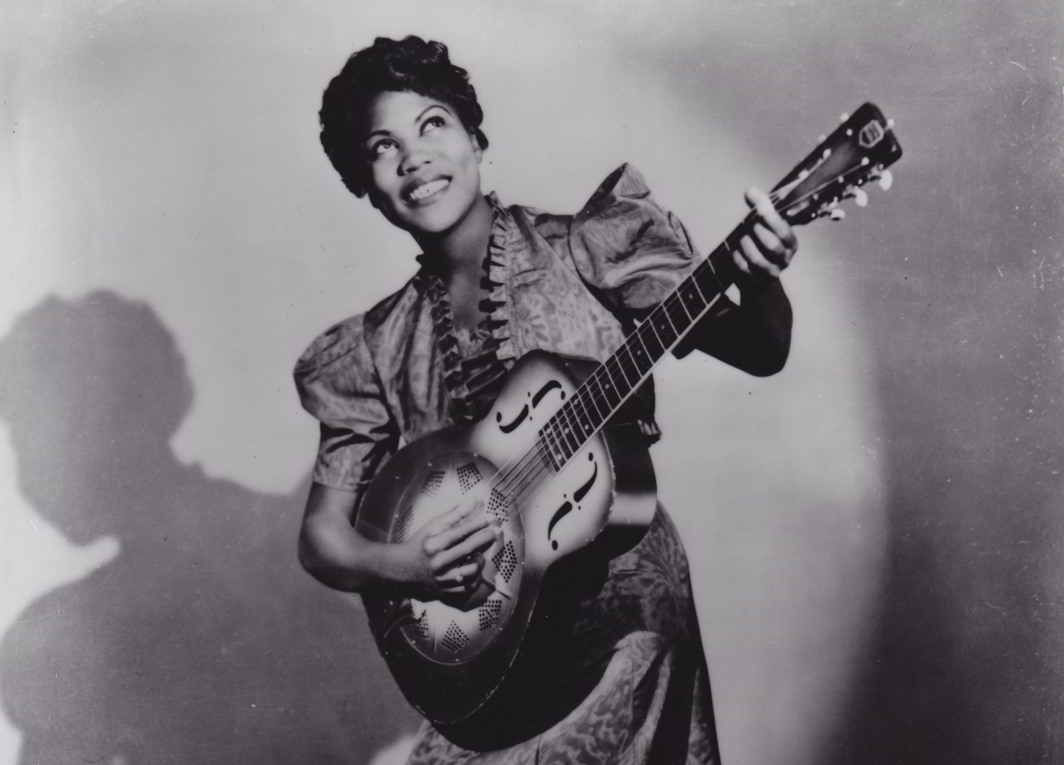[vc_row][vc_column][vc_column_text]Sister Rosetta Tharpe played the electric guitar in the 1930s and ’40s and laid the foundations of rock ’n roll music
By Sucheta Dasgupta
It is the time to remember music’s pioneers with rock ’n roll icon Chuck Berry passing away this weekend. The musician who helped shape the genre with his rollicking chartbusting hits was 90 years old. It is also Women’s History Month in the English-speaking world, so this story has that bit of special significance. Yes, it was a woman who invented rock ’n roll. And her birthday is today.
Her name is Sister Rosetta Tharpe. She sang in the 1930s and ’40s. She may have been forgotten by the history books until recently but she was the first woman to play the electric guitar, the first singer to sing gospel blues, and the first gospel music artiste to have been recorded in a studio. She was the musical influence of later blues and rock ’n roll artistes such as Elvis “The King” Presley, Chuck Berry, Little Richard and Johnny Cash.
Born to Arkansas cotton-pickers in 1915, Rosetta Nubin first began singing and playing guitar at the age of four. She was a child prodigy and soon she was playing in a travelling evangelical troupe alongside her mother. Rosetta moved to Chicago with her mother and gained significant fame. After a brief marriage to a preacher named Thomas Thorpe, she adopted her stage name, Sister Rosetta Tharpe.
Tharpe’s singing style reminds one of Janis Joplin and Tina Turner, and the range of her vocal chords is astonishing. Her guitar solos are among the best of the best and she easily outplayed the male artistes of her time in guitar battles. Sadly, women guitarists of her calibre are a rarity even today.
As the genre of blues began to take shape, it was stereotypes that did her in. Her guitar playing and innovative singing style had initially alienated her from more culturally conservative audiences while endearing her to more secular ones, but her popularity started waning in 1949. Tharpe suffered a stroke in 1970, after which one of her legs was amputated following complications arising from diabetes. In 1973, she died after suffering another stroke. She was 58 years old.
“All this new stuff they call rock ’n roll, why, I’ve been playing that for years now… Ninety percent of rock ’n roll artistes came out of the church, their foundation is the church,” Rosetta had famously said in 1957. Indeed, her contribution has been acknowledged by her musical successors. Richard referred to the stomping, shouting performer as his favourite singer when he was a child. When Cash gave his induction speech at the Rock ’n Roll Hall of Fame, he, too, referred to Tharpe as his primary influence.
In 2007, Tharpe was inducted posthumously into the Blues Hall of Fame. In 2011 BBC Four aired a one-hour documentary, aptly titled Sister Rosetta Tharpe: The Godmother of Rock & Roll, directed by Mick Csaky. Sample a YouTube video of the singer during her Europe tour (in the company of bluesmen like Muddy Waters and Otis Spann) here.
Her epitaph reads: “She would sing until you cried and then she would sing until you danced for joy. She helped to keep the church alive and the saints rejoicing.”
Rest in peace, Sister Rosetta Tharpe.
Image courtesy: PBS. org[/vc_column_text][/vc_column][/vc_row]













